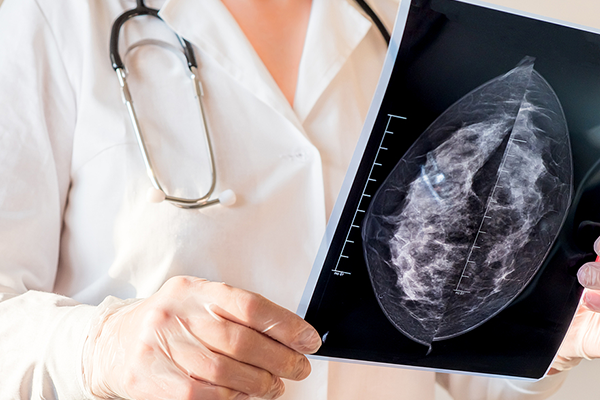1. Almost 50% of women age 40 or older have dense breast tissue.
Your breasts have fibrous and glandular tissue, as well as fat tissue. Fibrous tissue is connective, helping support the milk ducts and glandular tissues in your breasts. Fatty tissue and fibrous tissue give breasts their shape and size.
Breast density is caused by several factors, including age, genetics and pregnancy. Older women are more likely to have fatty breasts, and women with a low body weight are more likely to have dense breasts. If your provider tells you your breasts are dense, that means your breasts have more fibrous than fatty tissue.
2. Only mammograms can measure breast density.
You can’t gauge the density of your breasts based on their look or feel. Only mammograms are able to see the amount of fatty and fibrous tissue inside your breasts.
3. Having dense breast tissue can increase your cancer risk.
Researchers are still learning why, but those who have dense breast tissue are at a higher risk of breast cancer than women with fatty breast tissue and that risk increases with the level of density. However, there is no evidence that reducing breast density will reduce cancer risk.
4. Dense breast tissue can obscure cancer findings on a mammogram.
Fibrous and glandular tissues are white and opaque on mammogram readings. Tumors and calcifications, which are abnormal breast changes and possible signs of cancer, also appear as white. This factor can make changes to breast tissue more difficult to read in women with dense breast tissue. Fatty tissue, however, is transparent, making it easier for your provider to detect possible signs of cancer.
5. Breast MRIs can help physicians screen for cancer in women with dense breast tissue.
Combining breast magnetic resonance imaging (MRI) with traditional mammograms can be especially beneficial for women with dense breast tissue. MRI images are more detailed and they may detect smaller cancers that could go unseen on mammograms alone.
If your doctor has told you that you have dense breasts, ask about including a breast MRI in your annual cancer screenings.





